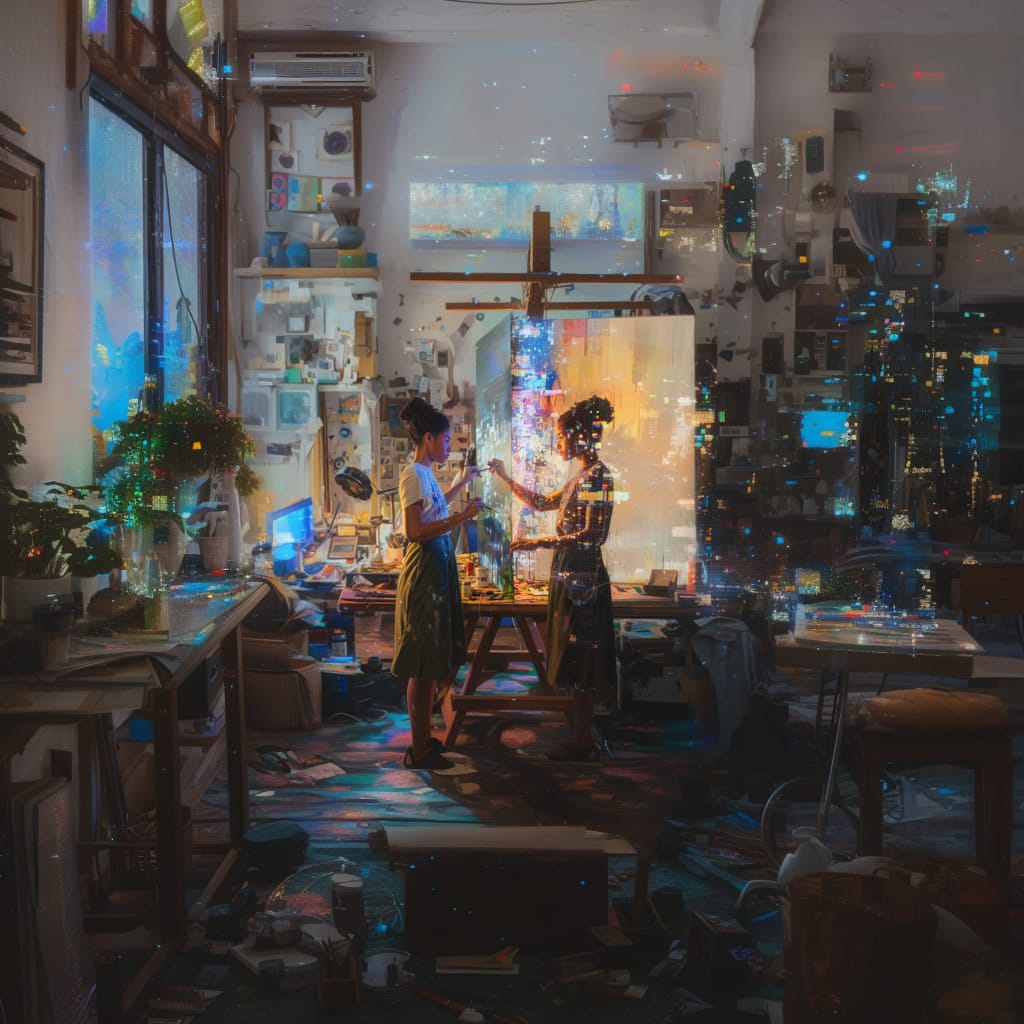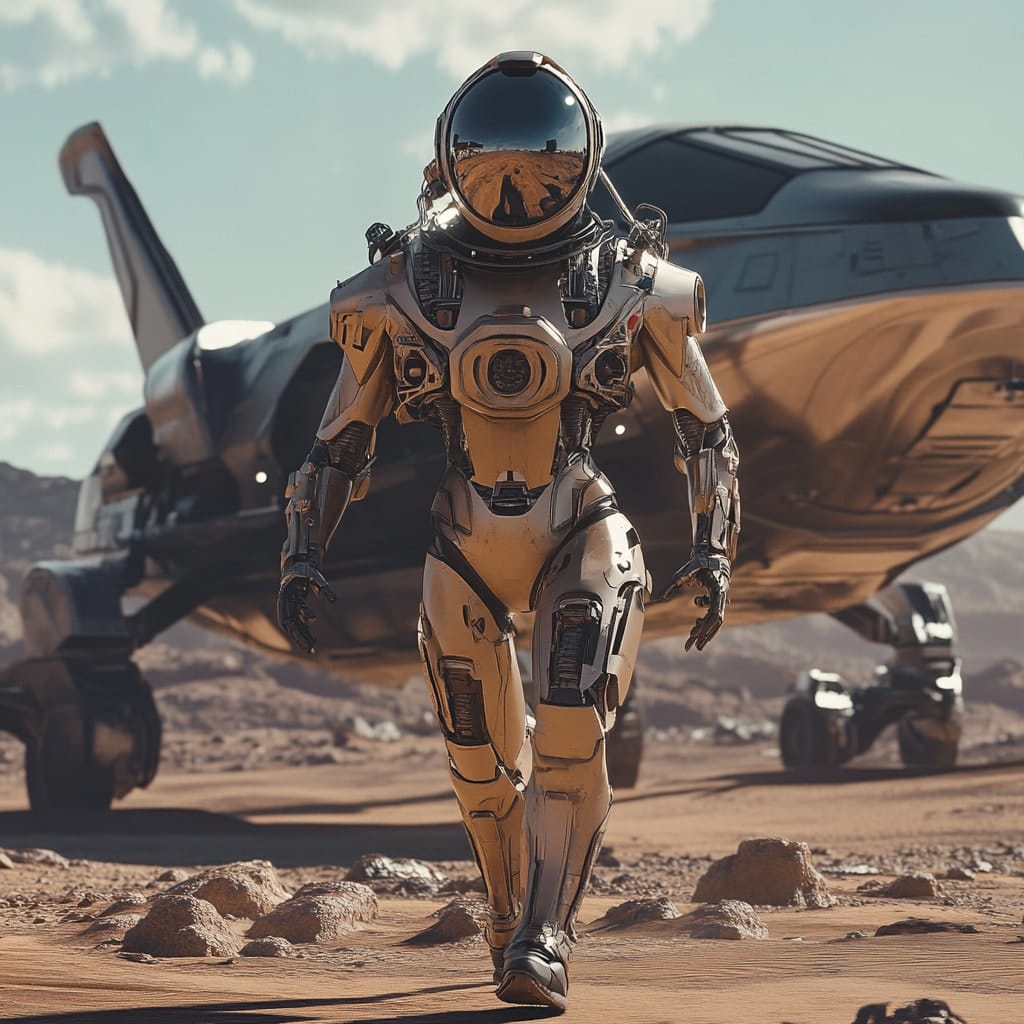
👩💻 AI will not replace humans - not even when it's superintelligent
It is said that AI will make you unemployed and in the long run turn humans into a useless class. That will never happen.
Share this story!
A useless class?
We love lists of which jobs AI will take first. Media gladly publishes extremely speculative "studies" that present exact percentages of how many jobs in different sectors will disappear.
However, there is a worse category, where humans are starting to become redundant.
AI will create a "useless class" that not only lacks jobs but is completely unemployable, Yuval Noah Harari has argued for several years. One of the AI godfathers, Geoffrey Hinton, is now not only an expert on AI but apparently also on the job market. He is very worried that AI will take many jobs. Nick Bostrom compares us to horses. First, they had tasks like pulling carts, but were replaced by new technology in the form of cars and trucks. The unemployed horses were sold to glue factories. Something similar could happen to humans, he argues.
The concern can be divided into two parts: 1) The short-term effect of narrow but sharp AI, like ChatGPT and other AI tools. 2) The long-term effect of artificial general intelligence and superintelligence.
The discussion can be made as broad as possible, but I've dealt with the effects on the job market before, after reading a real expert on the job market and technological shifts. Professor David Autor starts by stating that "the industrialized world is overflowing with jobs, and so it will remain" and argues that something even more interesting might be happening: "For workers with basic education and experience, AI can help leverage expertise so they can perform higher-value work."
Does AI reset talent?
Instead, I want to start from what the illustrator, Henrik Tamm, wrote in Svenska Dagbladet. He argued that AI "resets" his talent. My counter-argument was that AI unleashes human creativity. The tone-deaf can create music. Dyslexics can write beautiful prose. Tamm found this provocative:
"It's a deeply frustrating attitude. There should be no value in a human choosing to dedicate their life to learning the craft of an art form. Something very human disappears in that process."
This is where Tamm, and many of his peers, go wrong. The fact that I can now create nice pictures and real music doesn't diminish the value of Henrik Tamm's knowledge. Or well, it does. If Tamm stops developing and thinks the knowledge he's acquired so far is enough, then I will eventually catch up to him with the help of AI. But if he starts using AI tools in his work, he will be able to reach completely new levels.

For it's in the mix of human intelligence and artificial intelligence that the magic happens. When the knowledge in Tamm's brain is mixed with AI tools, something new can be created. Different, of higher quality, much more. Tamm himself will be able to create entire movies if he wants to. Or combine known illustration techniques in a new way. He can more easily experiment, test, and build an AI that is an extension of him and the knowledge he has.
These kinds of centaurs, which are a mixture of human and machine, will for a long time be able to perform things that both beat AI and that other humans are interested in.
Old jam
But there will come a point when AI becomes better than us at everything. Artificial general intelligence, AGI, and the step after, superintelligence. When AI is smarter and better at everything than all of humanity combined, who will then care about my texts and Henrik Tamm's illustrations?
Part of the answer lies in old jam. Or at least old recipes for jam. How often don't they boast on a jar of jam that the recipe is from the 19th century? Most things were worse in the 19th century, but for some reason, we think jam was better. I guess it feels more genuine, more natural, or something along those lines. You imagine some grandmother writing down a recipe, which is passed down through generations.

Many like the idea that a real human has made something. That's why I think people will always be interested in what other people do, even when they've done it with the help of AI. That AI can also do equally well or better will lead to us consuming lots of things that AI has produced, but for that matter not abandoning what humans have created.
Far from all decisions we make are made on a rational basis of what's best. We don't just listen to music that's best, but that we like for various reasons. For the artist, because it's linked to our identity, for status, because we kissed a girl for the first time to that song.
AI will be able to create music that we make memories to, but humans will also continue to be able to do so.
We've been to Mars several times. Not humans, but robots we've created. Some find that exciting, but a robot landing on Mars is not a world event. When a human steps out onto the red planet, it will be the biggest news of the century. We have a completely different connection to other humans than to machines.

That's not to say that we won't also have a relationship with AI. We're quick to give names to both robot vacuum cleaners and robot lawnmowers. An AI that we talk to and get to know over many years can of course create strong emotional bonds. If such an AI "steps out" on Mars, we will care, but it will take a lot for it to beat something a human does.
One doesn't exclude the other. Both humans and machines have room in our world and in our consciousness. I don't mean that what humans will create will always be worse than what a superintelligent AI will be able to do, but different. The really exciting thing will probably be what humans create together with superintelligent AI.
Do what you want
A world with superintelligence will contain an extreme abundance. Many of the limitations that exist today will be gone. Thus, there is also a very large freedom of choice for you in what you want to do. You don't have to work with cleaning to get money for food and rent. Or work at all, if you don't want to. But if you want to, you'll be able to do that too.
The key is to develop. To create something with AI - or without if you prefer - that is unique or special to you. Something you are passionate about.
This doesn't just apply when we've reached AGI or superintelligence, but on the way there. It already applies now.
Mathias Sundin
Angry Optimist
By becoming a premium supporter, you help in the creation and sharing of fact-based optimistic news all over the world.


